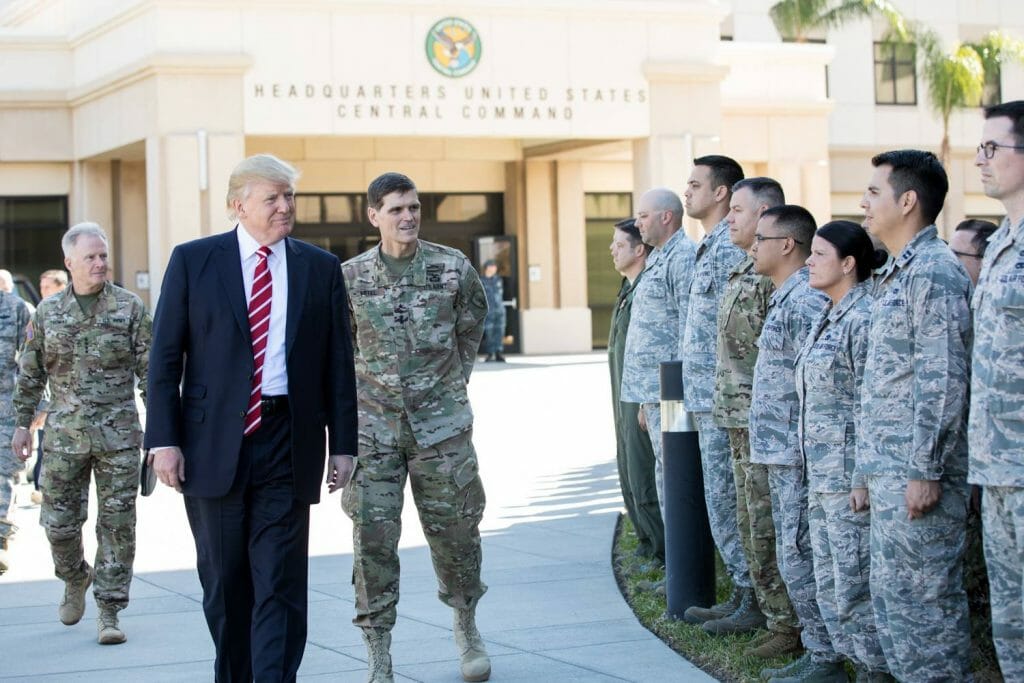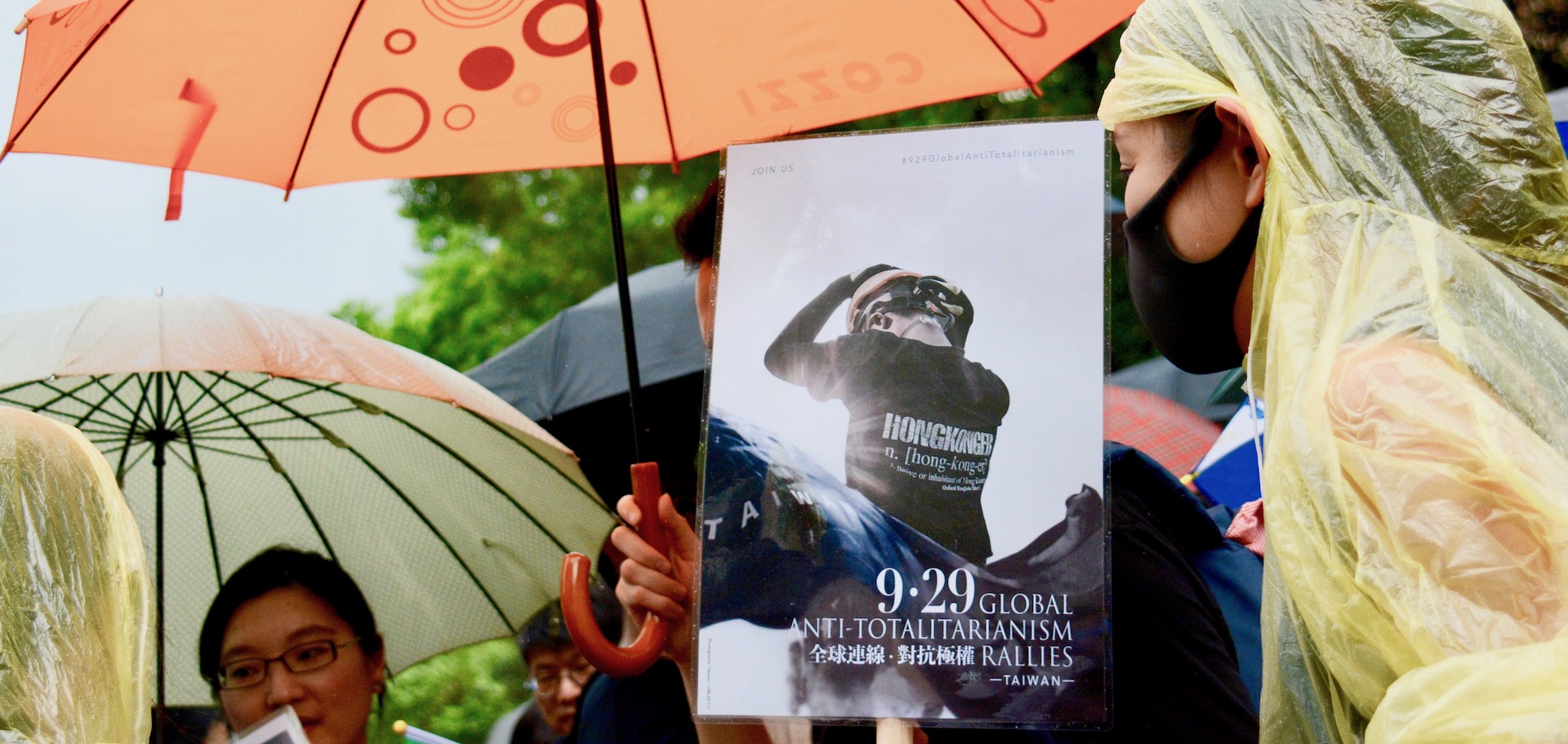President Trump is backing his foreign policy with a string of military action. He is also putting tougher demands on China, which could be good for regional security.
During the first meeting between U.S. President Donald Trump and his Chinese counterpart Xi Jinping earlier this month in Florida, Taiwan was hardly mentioned at all. Still, something very important happened with potential to influence how China handles the Taiwan “issue” in future.
Just before sitting down to dinner, Trump ordered his military to attack a Syrian airfield with 59 Tomahawk cruise missiles. When Xi was told of this act over dessert, he reportedly went silent for 10 seconds and then asked the interpreter to once again repeat what had just been said.
The strike must have come as an unpleasant surprise indeed. Not only was this the first American attack ever against the Syrian dictator Bashar al-Assad, it was also a complete reversal of Trump’s earlier line of no further U.S. military escalation in Syria.
Also, China is all but allied with the Assad regime. Since 2011, China has joined forces with Russia in vetoing United Nations Security Council resolutions on Syria on six occasions, the last time in February this year, ironically against sanctions due to alleged chemical weapons attacks.
More importantly, a Chinese rear admiral visited Syria last year, promising further military aid and training for government troops. And in an interview last month, Assad said ties with Beijing were on the rise and labelled the country “a real friend” that can always be relied upon.
What basically happened is that Trump, quite literally, invited the Chinese president to the dinner table, only to bomb his ally between courses.

U.S. President Trump gets close and personal with the troops (Photo courtesy of the Donald Trump official Facebook page)
The Chinese confusion could be seen by the fact that it took its state-owned news agencies 24 hours to even mention the Syria bombings. First, after Xi had left American soil, Xinhua wrote about the strike as an “act of a weakened politician who needed to flex his muscles” and also suggested Trump had ordered the strike to rid himself of accusations of being pro-Russian.
While Xinhua’s commentary of the strike, or its official Chinese account of the talks between the two presidents, did not even mention North Korea, some Chinese analysts viewed the timing as no coincidence, but an intentional warning to Xi that the same could actually happen in North Korea should China not help deter the nuclear weapons development taking place there.
Trump then went ahead to enforce this warning by sending the USS Carl Vinson aircraft carrier and its battle group toward the Korean Peninsula, as well as dropping the “Mother of All Bombs” in eastern Afghanistan, killing at least 94 islamist fighters and destroying a vast network of tunnels. This bomb, weighing in at over 10 tons, was the biggest non-nuclear bomb ever used in warfare.
Together, those acts might have been necessary for the Chinese to understand that the Trump administration is a different animal than the preceding one. As veteran U.S. diplomat Paul Haenle pointed out, Trump has been increasingly viewed as a paper tiger by Beijing, not only due to his inability to carry out many of his domestic election promises, but also for not labelling China a currency manipulator and giving in on his questioning of the “one China” policy.
Trump has been increasingly viewed as a paper tiger by Beijing, not only due to his inability to carry out many of his domestic election promises, but also for not labelling China a currency manipulator and giving in on his questioning of the “one China” policy.
Bonnie Glaser, director of the China Power Project at the Center for Strategic and International Studies (CSIS), said the Syria missile strike could send a message to Beijing that “Trump is a US president who is decisive and willing to use American power, including military power.” While she doubted that the timing of the attack was planned beforehand, Glaser believes that the strike can nevertheless deter China from using force to resolve issues in the South China Sea or Taiwan.
Glaser also noted how Barack Obama’s reluctance to engage in traditional military action was seen by many as a policy responsible for China’s construction of artificial islands in the South China Sea. She said there was “a sense that the Obama administration wasn’t necessarily willing to follow through threats and was unwilling to use military force,” but that Trump might now be treated with more respect.
Her views were echoed by Daniel Blumenthal, a China specialist at the American Enterprise Institute, who said that displays of American power matter a lot, and described the recent bombings in Syria and Afghanistan as “messages to Xi and Kim,” a reference to North Korea’s young dictator Kim Jong Un, whose development of nuclear weapons has been made possible by Chinese economic support and diplomatic protection for the past two decades.
It has been argued that China lacks political leverage to affect Kim’s decisions. But the fact that China is the destination for 90 percent of North Korean trade, and that the value of that trade has grown more than tenfold over the past 15 years, gives China enormous economic leverage over its unruly neighbor.
New statistics show that trade between the two countries grew by 37.4 percent in the first quarter of this year. Furthermore, a United Nations investigation last month revealed how China, despite United Nations Security Council sanctions, has been providing North Korea with technology crucial for its missile program.
When China calls for a “peaceful solution” and the importance of dialogue regarding the Korean Peninsula, it might come across to many as a responsible global player. But given its ongoing support for North Korea, the rhetoric rings increasingly hollow. Richard Gunde, former Assistant Director of the Center for Chinese Studies at the University of California, recently said that China “has not done what is required” to bring about a peaceful solution. He also compared the Chinese stance with Neville Chamberlain’s “peace in our time” speech 1938 and the appeasement policies toward Germany.
When China calls for a “peaceful solution” and the importance of dialogue regarding the Korean Peninsula, it might come across to many as a responsible global player. But given its ongoing support for North Korea, the rhetoric rings increasingly hollow.
So while the language of diplomacy was not particularly successful for the Americans, the language of power arguably created better results — at least for the time being. The week after the Syria bombings, China abstained its vote in the United Nations Security Council regarding a resolution condemning the chemical weapons attack earlier this month and pushing Bashar al-Assad to cooperate with international inquires into the incident. (Russia, of course, vetoed the resolution anyway, but this time only with the support of Bolivia.)
Also, some observers took a recent editorial in the party newspaper Global Times as proof that Trump has finally convinced China to tighten sanctions on North Korea. China had already banned all imports of North Korean coal in late February, but only on April 7, the day of the strikes against Syria, did China’s customs department issue an official order to return North Korean coal cargoes, after which many North Korean ships left Chinese ports still laden with coal. In mid-April, Air China also unexpectedly suspended flights to Pyongyang.
Those actions are most likely, at least to some degree, a result of Trump openly speaking of unilateral action against North Korea should the Chinese fail to cooperate. And for all his election campaign rhetoric of America First and not policing the world, after North Korea’s failed missile test on April 16 Trump tweeted: “Our military is building and is rapidly becoming stronger than ever before. Frankly, we have no choice!”
This new, tough foreign policy approach might seem reckless. But a reckless policy might come with some advantages when dealing with reckless states. And as far as Taiwan is concerned, Tomahawk missiles, carrier battlegroups and giant bombs might be more effective to deter Beijing hawks from an invasion than half-hearted verbal guarantees.
Top Photo courtesy of the Donald J. Trump official Facebook page
You might also like
More from China
A Few Thoughts on the Meng-Spavor-Kovrig Exchange
It is hard not to see this weekend’s developments as a victory for China and the creation of a world …
In Memoriam: Lee Teng-Hui and the Democracy That He Built
The former president of Taiwan is the incontestable refutation of the belief that history is merely an impersonal force, that …
The Making of ‘Insidious Power: How China Undermines Global Democracy’
A new book released on July 30 takes a close look at the agencies and mechanisms of CCP 'sharp power' …









